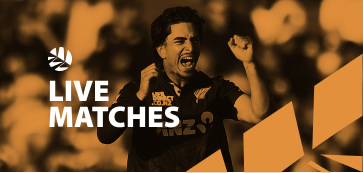When New Zealand’s best fast bowler since Sir Richard Hadlee pulled stumps on his international playing career two months ago, many thought Shane Bond would fade into cricketing obscurity. But Bond isn’t one to shy away from the cricketing scene and he is now putting his fast bowling knowledge to good use.

Bond retired from all cricket in May and since then he’s turned his attention to the coaching side of cricket. He’s always planned on becoming a coach and to pass on his vast knowledge about fast bowling to the younger generations.
For the last two months he’s been planning and preparing to take the next step in his cricket career. Bond has collected coaching aids to help develop his coaching base. He currently has the Level 2 coaching qualification. “I’ve been watching and studying cricket for the last 10 years,” he said. “It’s an exciting time. I was slightly apprehensive and thinking ‘what if I didn’t like it’ but it seems to come easily.”
He’s teamed up with his former coaches Denis Aberhart and Garfield Charles, working primarily with the next generation of fast bowlers. He’s enjoying the learning experiences so far. “Garfield coached me when I was younger and Denis coached me during my Canterbury and New Zealand playing days,” Bond said. “They are guys you can trust and it’s a good learning environment.”
Bond’s goal is to become a specialist coach with pace bowling and has spent the last month working with a training group at Lincoln and a group of Under 19 players at the Canterbury Cricket indoor centre. “I do want to specialise, but I would want to be involved with a team. I like that environment and want to work up to that. It’s going to be good fun.”
He’s relishing the opportunity to pass on his knowledge to the ‘Shane Bonds’ of the future. But he knows there’s a lot of hard work ahead for not only him, but for the young fast bowlers. “The best thing about being a coach is not having to warm up,” he laughed. “It’s not about your own ego. You have to put that to one side and do the best you can to help the players.”
Hindsight is a wonderful thing, and Bond knows that if the players put in the hard yards they can reap the rewards. “They need to know it takes sacrifice, especially the social life. They have to know that they can’t do it on their own and there are always people willing to help along the way.”
Iain O’Brien was the first fast bowler from the BLACKCAPS to retire during the 2009/10 season, and then less than six months later Bond decided that was it for his international career. Questions were starting to be raised about the country’s fast bowling stocks, but Bond thinks there is nothing to worry about. “People say there isn’t much talent, but I think that’s wrong. There’s a lot of talent,” he said. “We are getting the players into a good pattern when they are young and they are putting work in to be the best. It’s going to be challenging and a lot of discipline is required.”
Fast bowlers are notorious for getting injured – Bond is no exception – however he’s working on ensuring the next generation remain fit and healthy. Because of the nature of the games these days, players are taking to the field more and in turn are more likely to become injured. At a recent training camp at Lincoln the majority of the players arrived with an injury. “Half the kids in the bowling group came in with injuries and niggles. It’s happening younger now because more cricket is being played,” he said. “So to prevent that it’s about knowing about training, recovery and discipline. They will have to put in the work to be stronger and fitter.
“Fast bowling, it’s not a natural movement. Fast bowlers will get injured but it’s about ensuring there are bigger gaps between injuries.”
To be a top class fast bowler there has to be a fine balance between weights training and cardio work. The impact of fast bowling on a bowler’s body is immense – approximately eight times their weight courses through their body when they bowl a ball, compared to spin bowlers who only experience about four times their weight. “It’s about the mix of aerobic work, sprint work and weights. Resistance training is also very important,” he said.
He’s already seen some amazing young bowlers in the last few months, who have the potential to make it to the international scene and he’s looking forward to what the future might bring for the young talents. “It's good to look back at hindsight and see all the work ahead of these young guys and how rewarding it is. It could be awesome if they make that commitment,” he said.
Bond’s hoping to continue working with Canterbury and is possibly looking forward to working closely with the Canterbury Wizards for the upcoming domestic season. But for now while he’s not coaching he’s enjoying spending some time with his family. “I’m getting used to school lunches!” he laughed. “Every time I walk out the door the kids ask where I’m going. They are still slightly apprehensive about me going away. But if I make a career out of coaching I may be on the road again soon.”


















